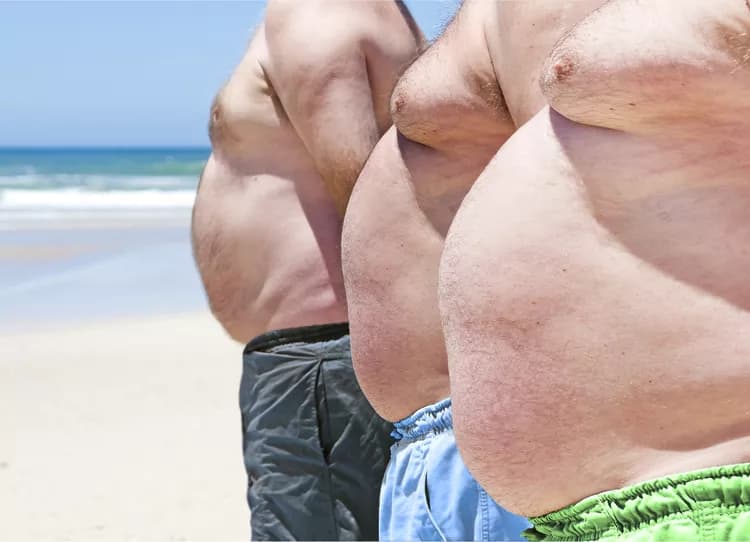
Want To Lose Weight? Cutting Fats Works Better, Say Scientists
A study by the National Institutes of Health (NIH), the National Institute of Diabetes, and Digestive and Kidney Diseases, USA has attempted to settle the argument on the better choice for weight loss: a low-carbohydrate or low-fat diet; and the answer favors the low-fat diet.
For people wanting to lose weight, burning fat is the main concern. While one school of thought recommends cutting starch and sugar, another endorses cutting fat intake. A low-carbohydrate diet is known to result in a drop in insulin levels, which in turn releases free fat from fat tissue for burning. The proponents of the low-fat diet state that reducing fat consumption not only helps lose weight, but is also beneficial to the overall cardiovascular health of an individual.
Dr. Kevin Hall, the lead author of the study, developed a mathematical model based on earlier studies. The model predicted that a low-fat diet would lead to an increased loss of body fat, when compared to a low-carbohydrate diet.
"A lot of people have very strong opinions about what matters for weight loss, and the physiological data upon which those beliefs are based are sometimes lacking," says Dr. Hall, in the American Association for the Advancement of Science Public Release. He continues, "I wanted to rigorously test the theory that carbohydrate restriction is particularly effective for losing body fat since this idea has been influencing many people's decisions about their diets."
To achieve this, 19 obese individuals with an average body weight of 230 pounds were divided into two groups. Each group was given a diet with 30% less calories. One group was provided with a reduced-carbohydrate (RC) and the other with a reduced-fat (RF) diet. This diet was followed for two weeks with continuous monitoring by scientists. The participants were allowed to rest, following which their diet plans were switched. In any type of diet, the protein levels remained unaltered.
The results showed that:
- The RC diet resulted in a decrease in insulin, increase in net fat oxidation (burning), and resulted in body fat loss.
- The RF diet resulted in fat burning to a lesser extent than the RC diet.
- Even with reduced fat burning, the RF diet led to an increased loss of body fat compared to the RC diet.
Thus, the mathematical model proved to be correct in its prediction. However, the model forecasts that in order to lose weight consistently over a prolonged period of time, overall calorie reduction would be more important; that the body will tend to minimize fat differences in diets that are equal in calories.
In the words of Dr. Hall, “There is one set of beliefs that says all calories are exactly equal when it comes to body fat loss and there's another that says carbohydrate calories are particularly fattening, so cutting those should lead to more fat loss," Hall says. "Our results showed that, actually, not all calories are created equal when it comes to body fat loss, but over the long term, it's pretty close."
Primary References
Hall, K., Bernis, T., Brychta, R., Chen, K., Courville, A., Crayner, E., . . . Yannai, L. (2015). Calorie for Calorie, Dietary Fat Restriction Results in More Body Fat Loss than Carbohydrate Restriction in People with Obesity. Cell Metabolism. Retrieved August 14, 2015, from http://www.cell.com/cell-metabolism/fulltext/S1550-4131(15)00350-2
Low-fat diet results in more fat loss than low-carb diet in humans. (n.d.). Retrieved August 14, 2015, from http://www.eurekalert.org/pub_releases/2015-08/cp-ldr080615.php
Additional References
You Don't Need To Go Low-Carb To Burn Body Fat, Study Says. (n.d.). Retrieved August 14, 2015, from http://www.npr.org/sections/thesalt/2015/08/13/432087757/you-don-t-need-to-go-low-carb-to-burn-body-fat-study-says
Westman, E., Feinman, R., Mavropoulos, J., Vernon, M., Volek, J., Wortman, J., . . . Phinney, S. (2007). Low-carbohydrate nutrition and metabolism. The American Journal of Clinical Nutrition, 86(2), 276-284.
Jéquier, E., & Bray, G. (2002). Low-fat diets are preferred. The American Journal of Medicine, 113(9B), 41-46.
Related Articles
Test Your Knowledge
Asked by users
Related Centers
Related Specialties
Related Physicians
Related Procedures
Related Resources
Join DoveHubs
and connect with fellow professionals

0 Comments
Please log in to post a comment.